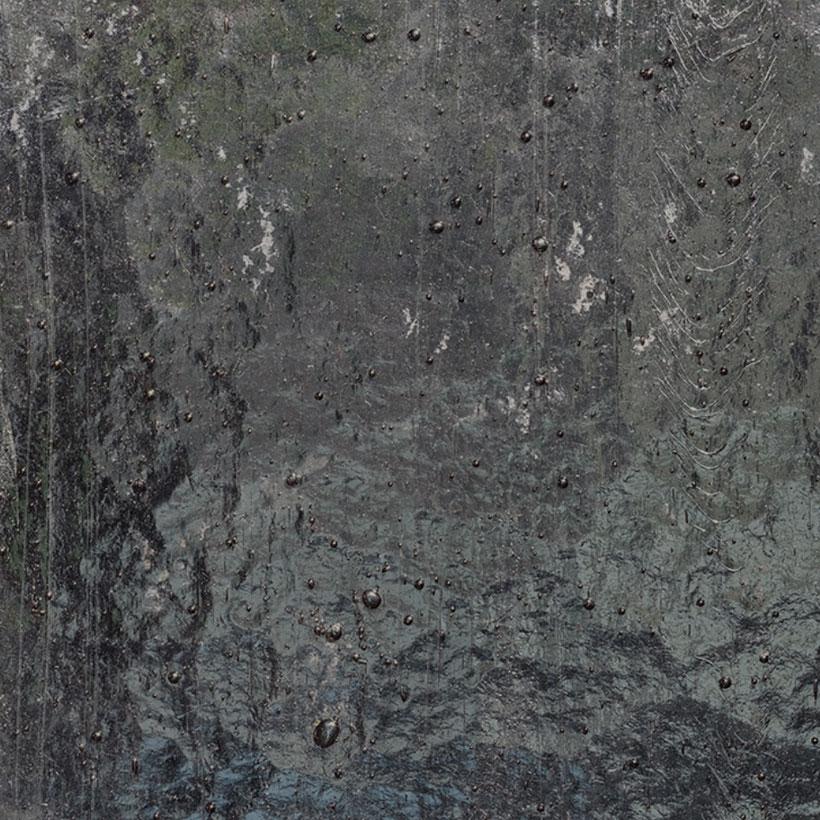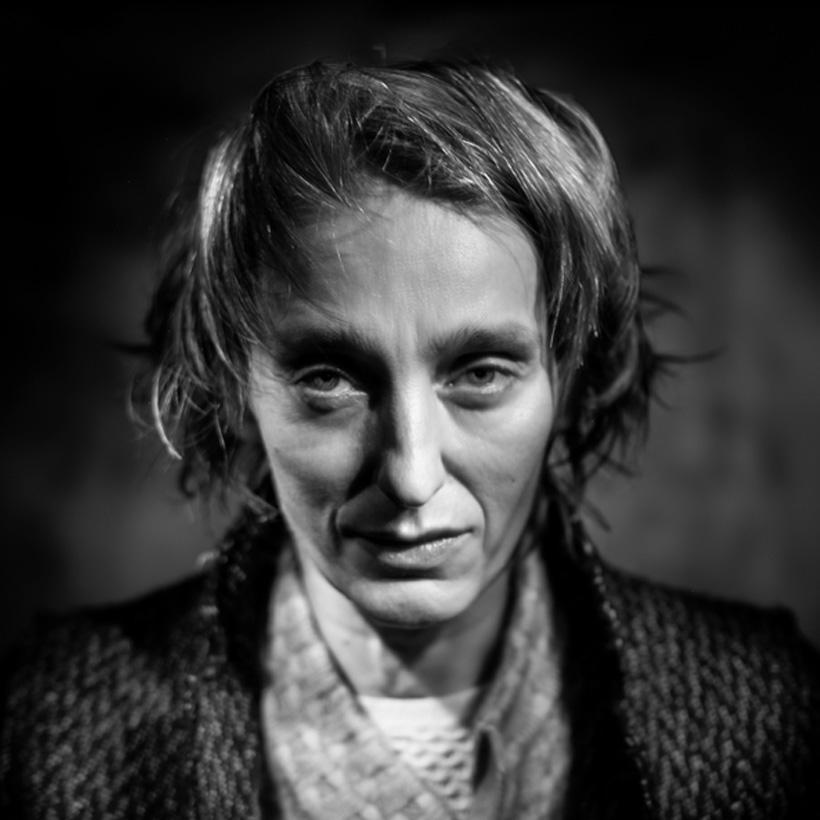Pasinskaya Theatre
Iwona Pasinska has been associated with the Polish Dance Theater since 1989. It was here that she began her performing career and made her debut as a choreographer after graduating from the ballet school in Lodz. Currently, Dr. Iwona Pasinska is a lecturer at the Academy of Theater Arts in Warsaw, and implements numerous projects as a choreographer and movement dramaturg both at the Movements Factory Foundation, which she created, and in collaboration with theaters throughout Poland.
Iwona Pasinska
Since 1989 she was associated with the Polish Dance Theater - Poznań Ballet, and in 1997 became its first soloist. In 1998 she was awarded the Leon Wójcikowski Medal for the most outstanding dancer of the young generation. In PTT she danced leading or solo roles in choreographies by, among others: Ewa Wycichowska ("Dangerous Relationships", "Daina", "Trans...Untrue Progressive Event", "Carpe Diem", "Springtime Effatha"), Jacek Przybyłowicz ("Necklace of the Dove", "Barocco"), Rafał Dziemidok ("Medea"), Magdalena Reiter ("36.5°"), Mats Eek ("Half Day of Midnight"), Yossi Berg ("Wo-man in Tomatoes"), Birgit Cullberg ("Romeo and Juliet"), Virpi Pahkinen ("Zephyrum"), Susanne Jaresand ("En face"), Thierry Verger ("Summer"), Grey Veredon ("Servant of Two Masters"), Jerzy Makarowski ("Carmen"). She was associated with the Polish Dance Theater until 2008.
.Since 2002 she has been involved in movement composition, dramaturgy of body expression and choreography. Her interests were cemented by three premieres at the Atelier of the Polish Dance Theater: "Game I. Time", "Moment: game" (two), "We play x3" and cooperation with the St. I. Theater. Witkiewicz in Zakopane. Together with producer and animator of culture Marcin Maćkiewicz in 2008, she founded Movements Factory collective, with which she realized projects: "Desert of Steam" (Archipelag Malta 2008), with Czeslaw Mozil "Gramy 4 U" (as part of madeinpoznan.doc, 2009), or in public space - "Saligia. 7 urban sins" (Malta Festival - New Situations block, 2009). In 2010, together with Movements Factory, she prepared two performances: "Trop: Dance as Art" (premiered at the Grand Theater in Poznań, a performance honored by the "Theater" monthly for the most interesting event in the area of dance theaters in 2010) and "BodyLand" (created at the invitation of the 8th Day Theater as part of the Drugie Miasto project). As a choreographer or movement dramaturg, since 2010 she has continuously cooperated with drama, opera and alternative theaters, among them: the Grand Theater in Poznan (here also directing "Peter and the Wolves"), the Wybrzeze Theater in Gdansk, the Contemporary Theater in Szczecin, the Ochota Theater in Warsaw, the Powszechny Theater in Warsaw, the Opera Nova in Bydgoszcz, the Lubuski Theater in Zielona Gora and the Modrzejewska Theater in Legnica. In drama theater, she worked with Marcin Liber ("Macbeth," "III Furies," "Alexandra. The Thing About Pilsudski"), Piotr Kruszczynski ("Everything You Would Like to Say After Your Father's Death, But Are Afraid to Speak Out," "Man with God in the Closet"), Igor Gorzkowski ("The Tempest," "The Old Woman," "Eclipse," "The Madman and the Nun," "Kalino malino czerwona jagoda"), Bartosz Frąckowiak ("Priest H., Or Angels in Amsterdam"). Her encounter with opera has led to collaborations with such directors as Natalia Babinska ("Halka", "Demetrio"), Ignacio Garcia ("Hamlet"), Michal Znaniecki ("Masked Ball", "Mandragora"), Monika Dobrowlańska ("Ophelia"), Piotr Boguslaw Jędrzejczak ("St. Francis and the Wolf of Gubio"). She has also acted in dramatic productions, including those by Piotr Kruszczynski ("Histericon," Polish Theater, Poznan), Maciej Prus ("Dziady," Polish Theater, Poznan), Andrzej Dziuk ("Shakespeare... or what you want"), Jan Szurmiej ("Bloody Gody Gody"). She was also an assistant to Claudia Castellucci of Societas Raffaello Sanzio for the play "The Rite of Spring".
In 2011, she co-authored the development of the concept for the pre-game ceremonies for Euro 2012/UEFA. In 2012, she choreographed the pre-game ceremonies for Euro 2012 in Poznań.
Her interests, focused on body expression and movement runs, create areas where it is important for her to meet performers also outside the professional world of dance and theater. The author's 2013 performance "Rite of Spring <6,6/66>", created within the framework of artistic residencies at the Laboratory of CK Zamek in Poznań, assumed the activation of creative impulses in participants in the area of three fields: body expression, voice expression and visualization. The project was aimed at amateurs (seniors +66 and juniors -6), with the intermediate goal of developing methods to unleash the creative potential in people without artistic experience. The project continued with another interdisciplinary Movements Factory project, this time of a para-opera nature: "Fallen Angels." The premiere of the performance, which marked the end of a series of workshops and rehearsals, took place on the Grand Stage of CK Zamek in Poznań in 2014.
.In 2015, she established the Movements Factory Foundation.
.While serving as director of the Polish Dance Theater, she choreographed the shows: "Harvest" (2017), "Polka" (2018), "Water Chick or Delusion" (2021) "Republic of Dreams" (2023), and choreographed the title "Wedding.Corrections".
She also choreographed the title "Wedding.Corrections".
She has directed five choreographic film projects: "Initiation" (2017), "The Belly" (2018), "The Axe" (2019), "This Mara" (2020) and "The Herbarium" (2021), which have won multiple awards at dance film festivals around the world (to learn more, click the link).
On September 18, 2017, she signed a contract for the project "Adaptation of buildings located in Poznań on Taczaka Street (including the renovation of a tenement house) for cultural purposes of the Polish Dance Theater with equipment", which, by the decision of the Board of Directors of the Wielkopolska Region, received EU funding from the Wielkopolska Regional Operational Program 2014+. The investment was completed and in December 2020 the Polish Dance Theater moved to its own premises at 8 Taczaka Street in Poznań. This was the moment when, after 46 years of efforts, the theater finally gained its own space to work and present performances.

